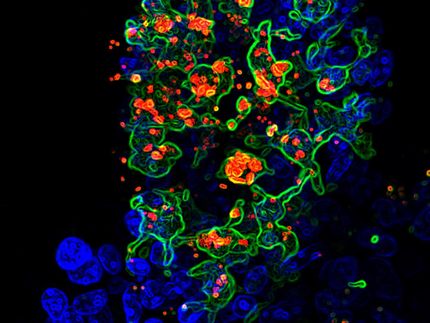Olivier Voinnet awarded 2009 EMBO Gold Medal
French researcher establishes RNA silencing as new field of plant biology
Olivier Voinnet from the CNRS Institute of Plant molecular biology in Strasbourg, France, is awarded the 2009 EMBO Gold Medal. The researcher receives this medal for his pioneering work on the mechanisms and roles of gene silencing via RNA in plants.
With this annual award, the European Molecular Biology Organization (EMBO) recognizes the outstanding contributions of young researchers in the molecular life sciences. The EMBO Gold Medal is widely regarded as one of the most prestigious life sciences awards in Europe, highlighting the high standards of Europe’s best scientists.
“Olivier Voinnet’s contributions to our understanding of gene silencing via RNA have opened up new perspectives on how the activity of genes may be controlled,” said Hermann Bujard, EMBO Director. “His outstanding work reflects imaginative approaches and a broad understanding of biological processes.”
The prizewinner conducts fundamental biological research with significant implications for medicine. RNA silencing is a newly discovered and highly competitive field in molecular biology. It describes a gene regulation process that has implications for the maintenance of genome integrity, antiviral defense, and developmental patterning in many organisms. Defects in these processes can result in major human diseases including cancer.
Already during his predoc time at Baulcombe’s lab from 1996 to 2001, Voinnet’s discoveries laid the foundation for his later understanding of the way plants use silencing to defend themselves against viruses, and how viruses, in turn, counteract this defense.
Following the discovery of microRNA and short interfering RNA in a wide range of different organisms, one key question that has kept Voinnet busy over the past years is “how do viruses and microbes deal with those endogenous RNA molecules?” His work helped establish that pathogens commonly interfere with, or even hijack the gene silencing pathways of their hosts.
His most recent achievement was the discovery that microRNAs also control antibacterial defense by targeting genes involved in hormone responses and that, in response, bacteria produce suppressors of the miRNA pathway. “Yet another illustration of the never ending molecular arms race between hosts and parasites.”
Most read news
Topics
Organizations
Other news from the department science

Get the analytics and lab tech industry in your inbox
By submitting this form you agree that LUMITOS AG will send you the newsletter(s) selected above by email. Your data will not be passed on to third parties. Your data will be stored and processed in accordance with our data protection regulations. LUMITOS may contact you by email for the purpose of advertising or market and opinion surveys. You can revoke your consent at any time without giving reasons to LUMITOS AG, Ernst-Augustin-Str. 2, 12489 Berlin, Germany or by e-mail at revoke@lumitos.com with effect for the future. In addition, each email contains a link to unsubscribe from the corresponding newsletter.





















































